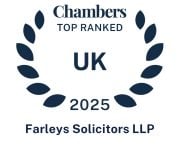Call us on
Request A CallbackCall us on
Request A CallbackBy their nature, debt recovery cases can be highly stressful. That’s especially the case if particularly large amounts of money are involved, or if there are any relationships that need to be carefully managed in the process – whether between you and the debtor, or you and other interested parties. That’s why our debt recovery solicitors in Manchester always take care to understand the complexities of your case in advance, while doing everything we can to minimise the financial impact that any defaulted debts may have on your business.
Working from our offices in Manchester and several other locations across the North West, we’ve always been committed to providing cost-effective debt recovery services to clients throughout the UK, and in some instances abroad, from SMEs to larger businesses.
There are no ‘one-size-fits-all’ solutions, which is why we offer a variety of specific Manchester debt recovery services – enabling us to employ a range of different techniques to maximise results for our clients. We tailor our approach based on several factors, which may include the size of the debt in question, and the nature of your relationship with your debtor. We also provide all of our clients with a single point of contact, streamlining communication and ensuring that it’s always easy for you to stay up-to-date with the progress of your case.
If you have concerns that your business may be affected by any debtors failing to make payments on time, and you feel you could benefit from the expertise of a specialist debt recovery solicitor, don’t hesitate to get in touch with us.
We always start each of our Manchester debt recovery cases the same way; our first item on the agenda will be to sit down with you for a detailed discussion about the background of your case and the circumstance which have led to the debt. Here, we can also address any initial questions you might have, or provide any additional clarifications you might need. After this initial conversation, our next step is to send a statutory demand to your debtor on your behalf, formally requesting them to pay the debt, and giving them a set timeframe in which to respond.
Once they have issued us with a response, or failed to do so within the set timeframe, we’ll then have another discussion with you to outline your available options to proceed. We have specialists in a range of different legal sectors here at Farleys, so you can count on us to have all the knowledge and expertise we need to help you work towards a definitive conclusion to your case.
A statutory demand (also called a statutory letter) is essentially a written warning from a debtor to a creditor, requesting that they pay their outstanding debt within a specified timeframe or risk becoming the subject of legal action. Typically, this timeframe is a minimum of 21 days, but the creditor may choose to be more lenient and extend it at their own discretion.
If the debtor ignores this letter, or their response is deemed to be less than satisfactory, the creditor is then free to launch further debt recovery actions. If the debtor is a business entity, these actions can be anything up to (and including) bankruptcy or a winding-up order from a Court.
Contact Us

For a confidential discussion with one of our solicitors,
please call 0330 134 6430 or email us

ONE of our Manchester clients ran up a £31,500 mobile phone bill after downloading the series finale of a popular TV show while away in Po...
How should I prepare for a debt recovery court case?
One of the best ways to start preparing for a debt recovery case is also one of the most overlooked. Namely, it’s always a good idea to start by engaging your debtor on an informal basis, to see if you can reach an agreement between the two of you. Some debt recovery cases can begin with a simple cashflow issue, and you may find that you’re able to resolve it without resorting to legal action.
However, if your debtor proves less than receptive, or if these negotiations break down, your next step should be to gather as much written evidence as possible, including any communications that show you have tried to resolve the dispute in good faith. This can help your solicitor better understand the case, and may strengthen your negotiating position. Examples of evidence can include emails, texts, instant messages, physical letters, and photos. If you have any commercial documentation such as purchase orders or invoices, these can be beneficial too.
Is it worth pursuing overdue debts?
As each business’ circumstances are different, there will be different levels of debt which each business will deem to be worth pursuing based on whether there is a reasonable chance of recovering the debt; and whether the eventual pay-out would be worth the time, effort and expense that would be involved in pursuing it. For some businesses, if the debt is under £100, it’s worth giving serious consideration as to whether it should simply be written off (although of course you may have to also think about whether that would send the wrong message to any other current or potentially future debtors).
If you’re concerned about protecting commercial relationships with your debtors (which is common among business owners), then it’s always worth engaging with them on an informal basis first, as we’ve touched on above.
Crucially, before you initiate any legal proceedings, it’s always wise to investigate the finances of the debtor first, which is something we can do for you here at Farleys.
Part of the assistance we will provide is looking into the debtor’s financial situation and giving you tailored advice accordingly, to help ensure that the course of action taken gives you the best chance of recovering as much of the debt as possible.
For example, we may find that you’re able to pursue a Court Judgment rather than Bankruptcy or Winding Up so you can use a variety of enforcement methods over a six year period, rather than being paid from whatever amount can be pooled into the insolvency estate of that individual or company at one particular moment in time.
Whatever the case, our top priority is always to ensure that our clients understand the full picture pragmatically as well as legally, including the advantages and disadvantages of different legal options, so we can work with you to pursue the debt as efficiently and cost-effectively as possible.




We truly value and appreciate the feedback we receive from our clients, as we look to improve the services we offer on an ongoing basis




